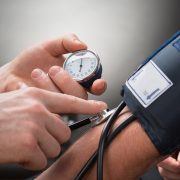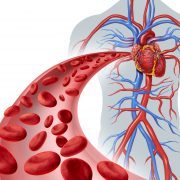Meta-Analysis of Evidence Connecting Omega-3s and Cardiovascular Health
Nearly 6 out of 10 American adults have elevated blood pressure, which is linked to an increased risk of strokes, coronary heart disease, and total mortality. A meta-analysis published in the American Journal of Hypertension analyzed 70 trials to determine the effect of eicosapentaenoic acid (EPA) and docosahexaenoic acid (DHA) on blood pressure.
Weighted differences were used to separate individuals into an EPA+DHA group and a placebo group. All of the studies combined resulted in a 1.52 mm Hg reduction in systolic blood pressure and a 0.99 mm Hg reduction in diastolic blood pressure for the EPA+DHA group over the placebo group. Additional data was used to further separate these into subgroups for additional analysis. This revealed even stronger effects of EPA+DHA, where a 4.51 mm Hg reduction in systolic blood pressure and a 3.05 mm Hg reduction in diastolic blood pressure were observed among untreated hypertensive subjects.
These results continue to build on prior evidence showing that omega-3 fatty acids may play a role in helping individuals control their blood pressure. One of the authors, Dominik Alexander, PhD, noted that “when measuring blood pressure, even small reductions can have a significant clinical impact.” He continues to note that these small differences could be the difference between having to take medication to control blood pressure. A 2 mm Hg reduction in blood pressure reduces stroke mortality by 6%, coronary heart disease mortality by 4%, and total mortality by 3%. In untreated hypertensive individuals, where the EPA and DHA were most effective, EPA+DHA treatment was as effective, or more effective, at lowering blood pressure than increasing physical activity and restricting alcohol and sodium.












